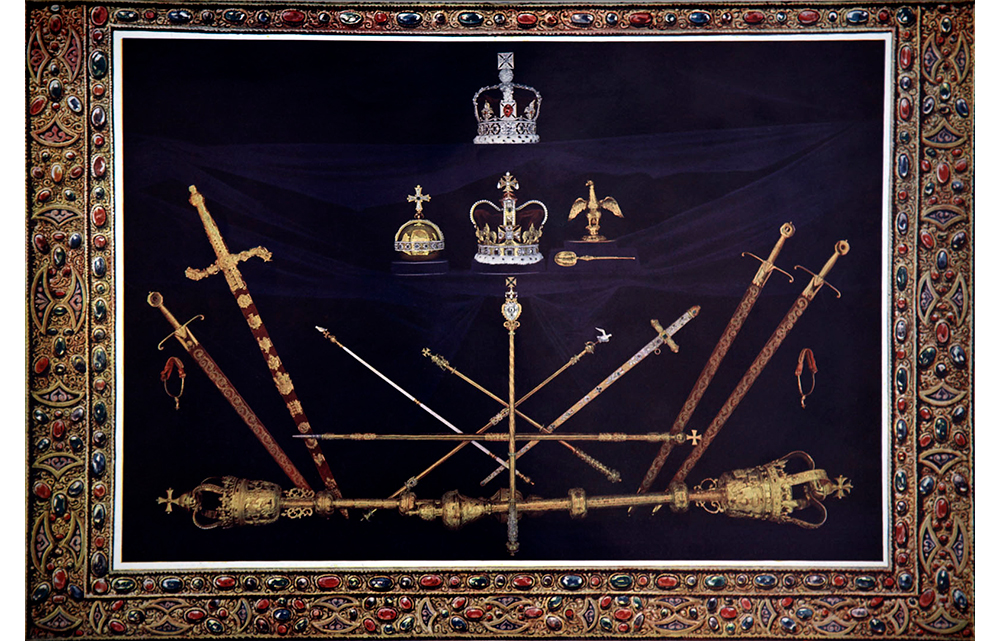It is many years since anyone seriously entertained the doctrine expounded by Shakespeare’s Richard II: ‘Not all the water in the rough rude sea can wash the balm off from an anointed king. The breath of worldly men cannot depose the deputy elected by the Lord.’ Nevertheless, on Saturday King Charles III will be solemnly anointed in Westminster Abbey in a ceremony whose roots are ancient but whose meaning is fresh.
Behind the screen, in a very personal act of commitment, the King accepts his calling from God
The Israelites asked for a king so that they could be ‘like all the nations’. Anointed monarchs have a long history but today the rites surrounding the British monarch are unique in Europe.
In the unwritten British constitution, while much of the ancient theatre has been preserved since the coronation of King Edgar the Peaceful in 973, the symbolism has changed. During the 19th century, effective power passed to ministers whose position depended on electoral success. As power was transferred elsewhere, however, the symbolic significance of the monarchy increased. Victoria’s reign was crucial in this respect and, often much against her personal tastes, she became a symbolic focus of loyalty surrounded by increasingly elaborate ceremonial events.
The language of these events is referred to, often disparagingly, as ‘symbolic’. Yet symbols, which elude neat definitions, can open the mind and heart to the transcendent. Symbols speak for themselves and lose power if they are larded with pedestrian explanation.

Walter Bagehot, the Liberal Victorian economist, analysed the new case for monarchy in his 1867 book The English Constitution: ‘The mystic reverence, the religious allegiance which are essential to true monarchy are imaginative sentiments that no legislature can manufacture in any people.’
In the coronation of King Edgar, the central act was his anointing, and this will be the case on Saturday.







Comments
Join the debate for just £1 a month
Be part of the conversation with other Spectator readers by getting your first three months for £3.
UNLOCK ACCESS Just £1 a monthAlready a subscriber? Log in